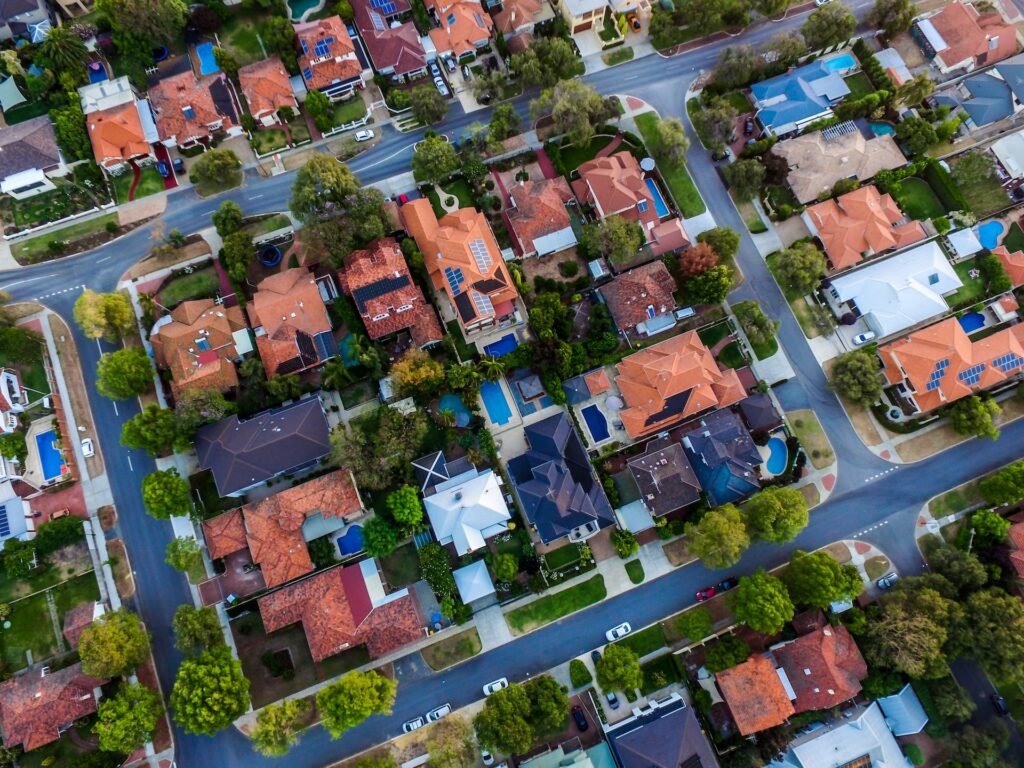Recent news about inflation and issues with the economy might have you worried that another housing market crash will occur as it did during the Great Recession that began in 2007. However, the factors that caused the market to crash in that period of time are entirely different from what’s happening today with the real estate market. In fact, the U.S. housing market is largely very healthy. Even though buyer demand has dipped slightly from the highs in 2021, many buyers are still being tasked with paying well over the asking price to purchase a home because of how much buyer demand there is.
According to the National Association of Realtors (NAR), home values for existing properties rose by nearly 15% between May 2021 to May 2022. During this time, the average price for a home in the U.S. went above $400,000 for the very first time.
Even though the COVID-19 pandemic has caused extensive supply chain issues that have created problems with the overall economy, the housing market itself has only become healthier since the Federal Reserve lowered interest rates in 2020. Throughout the remainder of 2022 and into 2023, home values are estimated to continue rising by upwards of 12%, which indicates that the housing market won’t crash in the near future.
There are plenty of reasons why the housing market won’t crash, which include everything from lending standards remaining strict for prospective borrowers to builders being unable to meet demand. Even though the economy isn’t perfect and inflation rates continue to rise, buyer demand is still high. Buying a home is a fantastic investment that provides people with security and the ability to build wealth over an extended period of time. This article takes a closer look at the housing market and if it will crash anytime soon.

Is the Housing Market Going to Crash?
The previous time that the real estate market had as much uncertainty was just before the Great Recession that began in 2007. Once the real estate bubble fully burst, the entire real estate market had a sizable downturn that lasted for several years. Because of the potential for another recession as well as high interest rates, many people are wondering if it’s feasible that the market will soon crash.
Despite some of the challenges that the housing market is facing at the moment, it’s built on far sturdier foundations than the ones that existed in 2007. At that time, low-quality loans had been provided by lenders for years. Even if borrowers didn’t have great financials, they were able to obtain loans with high interest rates. The issue is that the worsening economy and rapid increase in interest rates caused many borrowers to be unable to make their monthly mortgage payments, which resulted in a notable spike in foreclosures.
Since the 2007 financial crisis, lending guidelines have become considerably stricter and more rigid, which reduces the likelihood of a foreclosure even if the economy isn’t doing well. The total supply of homes that are available for sale is right around all-time lows, which means that owning a home is still considered to be a valuable investment. Borrowers are also more creditworthy than they’ve ever been. When looking at the most pertinent indicators about the state of the real estate market, the market isn’t going to crash.

Housing Price Increases
There are several factors that are affecting the current housing climate, the primary of which include housing price increases, a rise in material costs, and labor shortages. Housing economists have made predictions for months about how the real estate market would cool down because of the increase in home values.
It’s believed that increasing home values will cause buyers to become less interested. In fact, home prices have increased at a rate that’s much higher than income increases, which makes it more difficult to afford a home. Despite these challenges, mortgage rates have effectively doubled over the past year.
Home values have increased substantially in many areas across the U.S. In Los Angeles, home values have gone up by around 14.6% between June 2021 and June 2022. During the same time period, prices have increased by upwards of 19% in Thousand Oaks, CA.
The reason that home prices continue to increase is because of supply and demand. There’s still a considerable amount of demand for new homes as well as a low supply of homes that are currently on the market, which means that demand outstrips supply. In this situation, prices invariably increase.
To understand how unlikely it is that the real estate market will crash in the near future, it’s important to compare current market conditions with the conditions that existed in 2007-2008. At that time, demand dropped far below supply, which meant that the number of buyers on the market was much lower than the number of homes that had been placed on the market.
In comparison, the supply of homes today is around 25% of what it was back in 2007. With buyer demand currently being high and supply being low, there’s no reason to believe that the market should crash. It’s also important to look at the availability of lumber. During the COVID-19 pandemic, factories were forced to shut down temporarily, which created significant supply chain issues that resulted in a lumber shortage.
Currently, lumber costs around $475 for every 1,000 board feet. While prices have been dropping substantially over the past month, they are still considerably higher than they were before the pandemic, which is why new building starts are low.
Keep in mind that labor shortages have also occurred in the housing market. It’s been estimated that more than 2.2 million new workers will be needed over the next three years to accommodate the housing demand. Because of the physical demands that come with this industry, an increasing number of workers are opting for different careers.

5 Reasons the Housing Market is Not About to Crash
There are numerous reasons why the housing market will remain relatively stable in the near future with slight increases in value and pricing. These reasons include everything from inventories being lower than usual to demographic trends creating entirely new buyers.
Inventories are Near Record Lows
Inventories are currently near record lows. In fact, the NAR has stated that there’s just a 2.4-month supply of homes at the moment. Because of how little inventory there is, buyers are required to increase their offers if they want the seller to accept. It will likely take a long time before supply gets close to demand.
Builders Can’t Build Quickly Enough to Meet Demand
As touched upon previously, builders pulled back substantially following the 2007 crash. Even though new home starts have gone through an ebb and flow since that time, they’ve never fully increased to the pre-2007 levels. Currently, it’s almost impossible for land to be purchased and regulatory approvals to be made in a short enough timeline to meet demand. Even though the industry is building as much as possible, it’s unlikely that overbuilding issues will occur as they did 15 years ago.
Demographic Trends are Creating New Buyers
Demographic trends are also creating new buyers because of the high demand on all fronts. A large number of Americans who were already homeowners made the decision to sell their existing homes for the purpose of buying a larger home that provided more room and accommodated a work-from-home environment. Along with more and more millennials choosing to be homeowners, Hispanics are also a growing demographic interested in homeownership.
Lending Standards Remain Strict
Lending standards are currently very strict. A top reason for the housing crash in 2007 was because of the issuing of “liar loans”, which were provided to borrowers even if they didn’t formally document their income. Lenders would provide mortgages to nearly everyone even if they had a poor credit history or low down payment, which meant that many borrowers ended up defaulting on their mortgages.
Currently, the lending standards are considerably more stringent with high credit requirements. In fact, the average credit score for borrowers in the latter half of 2021 was 786. With these strict requirements in place, the risk of defaulting is much lower, which should allow for the housing market to remain healthier.
Foreclosure Activity is Muted
In the years following the 2007 housing crash, the market was flooded with millions of foreclosures, which resulted in home prices decreasing rapidly. This currently isn’t the case. The majority of homeowners have a good and comfortable equity cushion with their homes. In 2020, foreclosures were at record lows. While foreclosure rates have increased since then, they are still relatively low when taking historical data into account.
Even though interest rates have been increasing and home values have gone up, buyer demand is still exceedingly high. When combined with low inventory, the high buyer demand indicates that the real estate market is strong. While there may be some changes to the market in the months to come, there’s no indication that the housing market will crash.